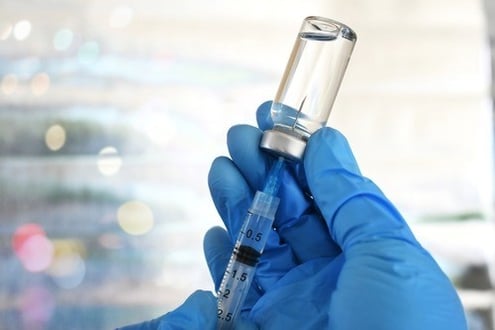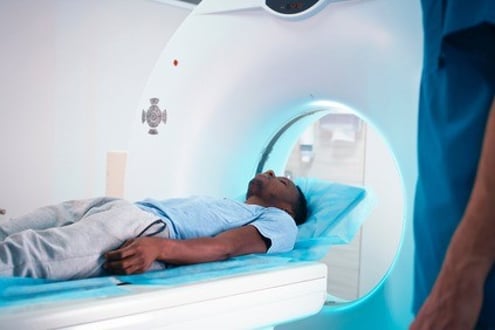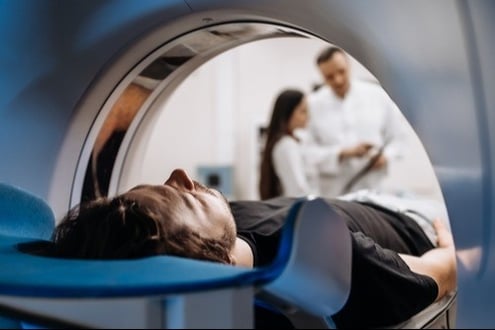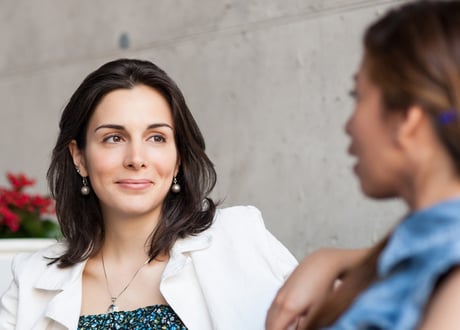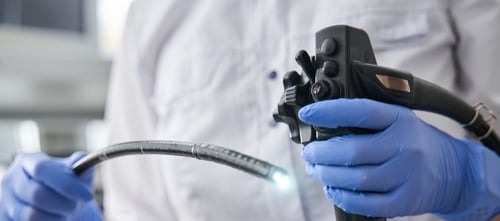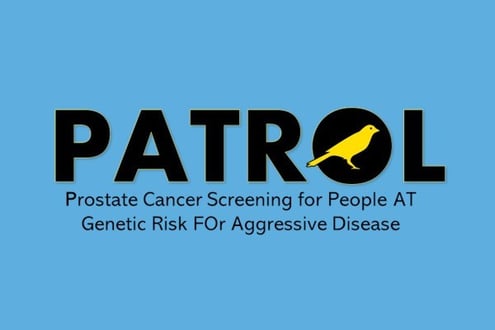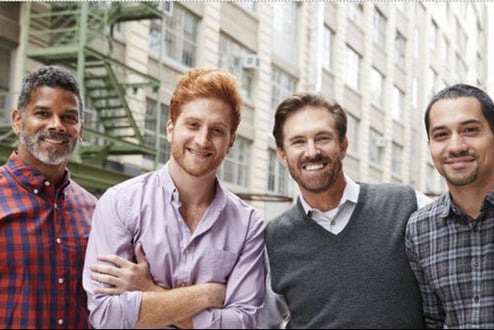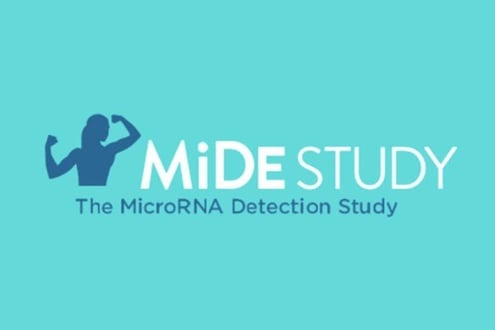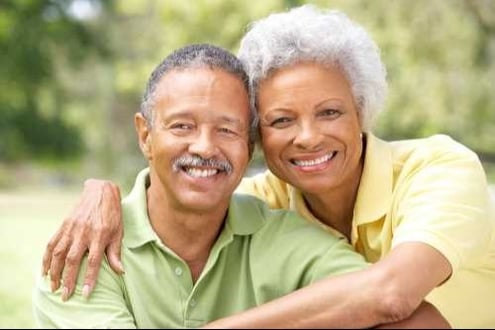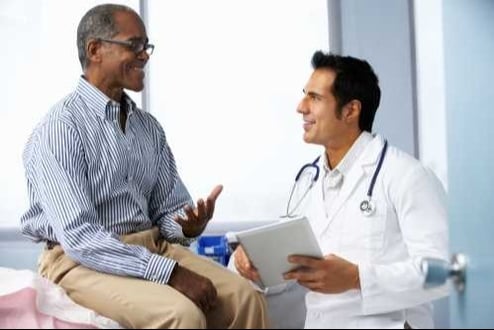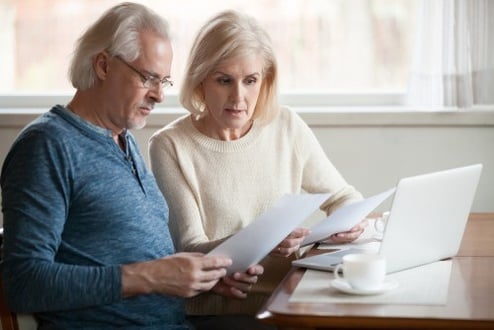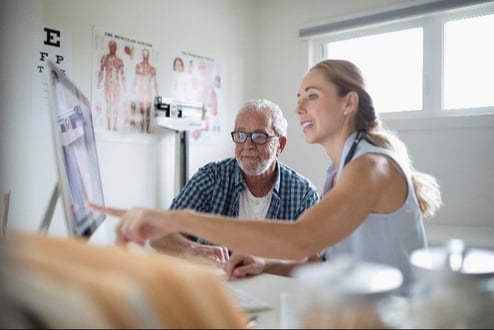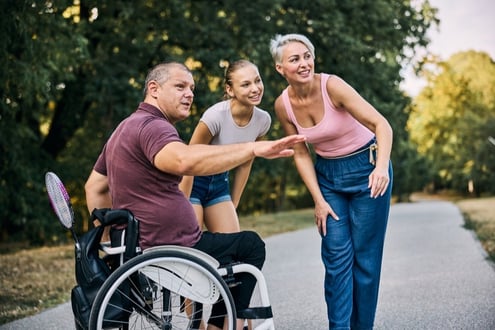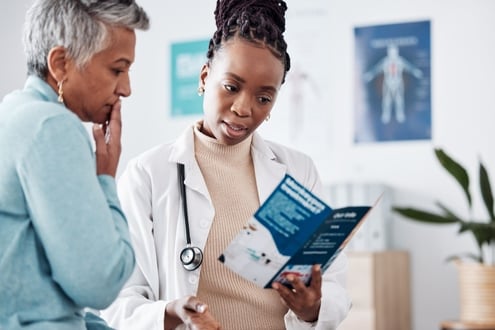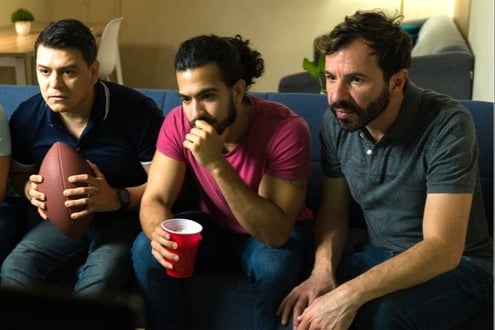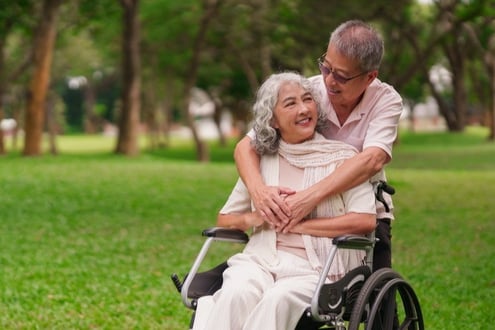BRCA1 Gene Mutation

Frequently Asked Questions about Inherited Mutations
Below are some of the questions people ask about the gene, genetic testing and test results. If you have already tested positive for a mutation, you can read more detailed information about risk, risk-management and treatment options here.
What is ?
is a gene that helps repair damage to your . People who are born with changes—called mutations—in the gene have an increased risk for certain types of cancer.
Which cancers are associated with a mutation?
People with an in have an increased risk for the following cancers:
- breast
- ovarian
- pancreatic
Research has linked mutations to an increased risk for other cancers. For most of these cancers, the evidence is limited, the increase is small and more research is needed to prove a link.
Does everyone with a mutation develop cancer?
Although the lifetime risk for cancer with a mutation is very high, not everyone with the mutation develops cancer. Following the guidelines for screening and prevention increases the chances of preventing cancer or catching it at its earliest and most treatable .
Can men have a mutation?
Men and women can carry a mutation. mutations can be passed down from fathers or mothers to their sons and daughters.
What are the signs of a mutation?
Some of the signs that may indicate a mutation runs in the family include:
- breast cancer diagnosed before age 50.
- breast cancer in both breasts, or two separate diagnoses of breast cancer.
- , ovarian cancer, pancreatic cancer or prostate cancer at any age.
- multiple relatives on the same side of the family with breast, ovarian, pancreatic or cancer.
This is not a complete list. Visit this page for more signs of an in the family. FORCE recommends speaking with a genetic counselor who can help make informed decisions about genetic testing.
Can skip a generation?
is a gene. Genes do not skip generations.
Mutations in the gene may be passed down from parents to children, but mutations do not skip generations either. Each person with a mutation has a 50% chance of passing their mutation on to each of their children. Children who did not inherit their parent's mutation cannot pass the mutation to their children.
Cancer can skip generations.
Some people with a mutation never develop cancer. They can still pass their mutation on to their children. A child who inherits their parent's mutation will be at increased risk for cancer. If a parent with a mutation never develops cancer, but their child who inherited their mutation develops cancer, it can appear as though the mutation has skipped a generation.
How do I find out if I have a mutation?
Genetic testing is a type of medical test that can help people learn if they have an in and other genes. The test can be performed on blood, saliva or tissue. The sample is collected and sent to a genetic testing lab.
It's a good idea to speak with a genetics expert before having genetic testing. They will answer your questions about testing and ensure that the correct test is ordered.
Who should get testing?
Anyone with a close relative (first-, second-, or third-degree relative who has tested positive for an should speak with a genetics expert about genetic testing.
Anyone with a personal or family history of cancer consistent with the signs listed above should speak with a genetics expert about genetic testing.
Does insurance cover the cost of testing?
In most situations, the cost of genetic testing is covered by insurance. Depending on your situation, deductibles and co-pays may apply.
How much does the test cost?
In most cases, people can get genetic testing for $300 or less. In certain situations, people may be able to get genetic testing with no out-of-pocket costs. The cost to you may depend on several factors, including:
- your insurance coverage.
- the type of genetic test that was ordered.
- your personal and family history of cancer.
Some labs offer financial assistance to cover the cost of genetic testing for people who are experiencing financial hardship.
How long does BRCA1 testing take?
Genetic testing can be performed using a saliva or blood sample collected at your doctor's office or at a lab. In many cases, your doctor or genetic counselor can order a saliva test kit that can be sent directly to your home. Once the lab has received the sample, results are usually available 2-6 weeks later.
What can people do if they are positive?
If you test positive for a mutation, you have options for screening, prevention and treatment of . There are expert guidelines and clinical trials that focus on:
These guidelines are based on the most current research and updated yearly. People who test positive for a mutation should speak with a genetics expert to make sure that their medical care is based on the most up-to-date information.
If you test positive for a mutation, you should inform your close blood relatives (first-, second-, and third-degree relatives) about your test results and encourage them to speak with a genetics expert.
What is Fanconi Anemia and what does it have to do with a mutation?
Fanconi Anemia (FA) is a rare and serious childhood disease that occurs in children who inherit two mutations, one from each parent. Children who have FA have blood problems, physical and developmental issues, and an increased risk of certain cancers.
Get notified when updated information becomes available.
SIGN UP FOR CONTENT UPDATESCancer Risks
Cancer risk estimates are updated based on the latest research. Read about the lifetime risk for different cancers in people with inherited BRCA1 mutations.
Prevention & Detection Options
Read about the latest expert guidelines for cancer screening and prevention for people with a BRCA1 mutation. Learn about research studies enrolling high-risk patients.
Cancer Treatment Options
Tumor biomarker testing and genetic testing can provide additional clues about which treatments may work best for your cancer. People who test positive for a BRCA1 mutation may have additional treatment or clinical trial options available to them.
Other Considerations
People who inherit a mutation in both copies of their BRCA1 gene—one from each parent—have a rare disease known as Fanconi anemia. Learn additional information about inherited BRCA1 mutations.
More Resources
Participate in Prevention Research
The screening and prevention studies below are enrolling people with mutations. To search for more studies, visit our Search and Enroll Tool.
Participate in Treatment Research
The treatment studies below are enrolling people with mutations. To search for more studies, visit our Search and Enroll Tool.
